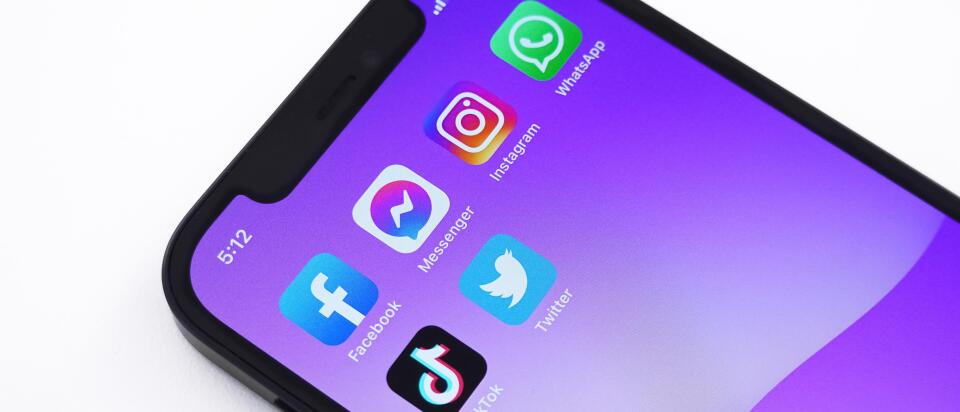
Event marketing requires effective communications for optimum impact. This can sometimes be difficult when you are just getting started. As a marketer, you already know that email invites, online advertising, and social media promotion are effective ways you can use to drive ticket sales and registrations. But how do you optimize the event attendee journey to maximize attendance?
One way to get the most out of your event promotion strategy is to have a promotional calendar. It makes the timeline where you will do specific activities weeks and months before and after an event. These activities include sending out the right messages at the right time and through the most appropriate channels. Here is a rough timescale you can use to promote your event effectively online.
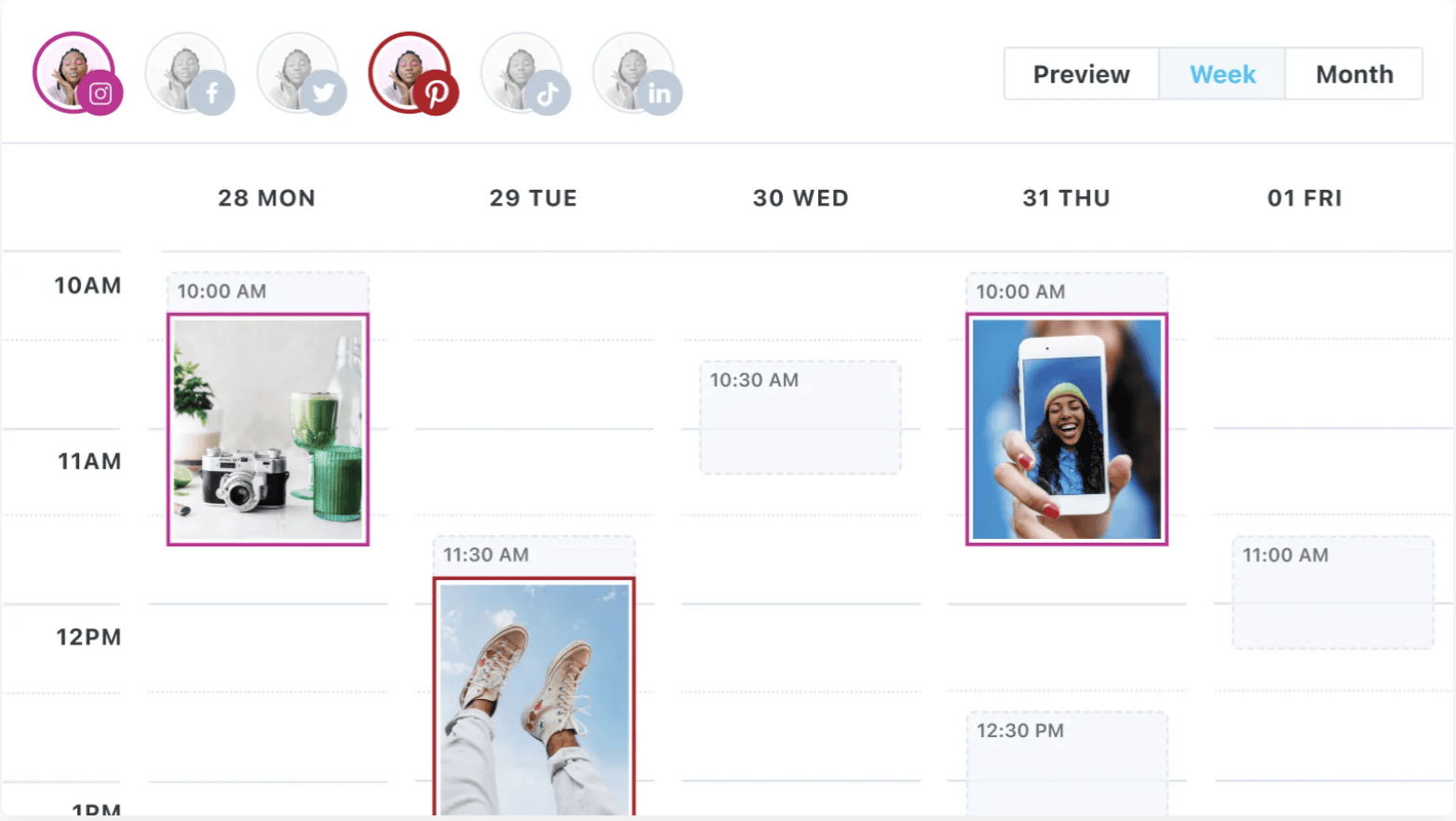
An example of a social media calendar.
16 weeks before your event
You have a lot to do to start planning for an event, and it's best you start as soon as possible. This includes getting venue contracts to vendor and sponsor requests. Taking your time to build up anticipation and excitement in the weeks following the events will be worth every effort.
Let your followers know your plans on social media and communicate when they can start purchasing their tickets. If you already have a list of attendees from a previous event, send an email with the same information.
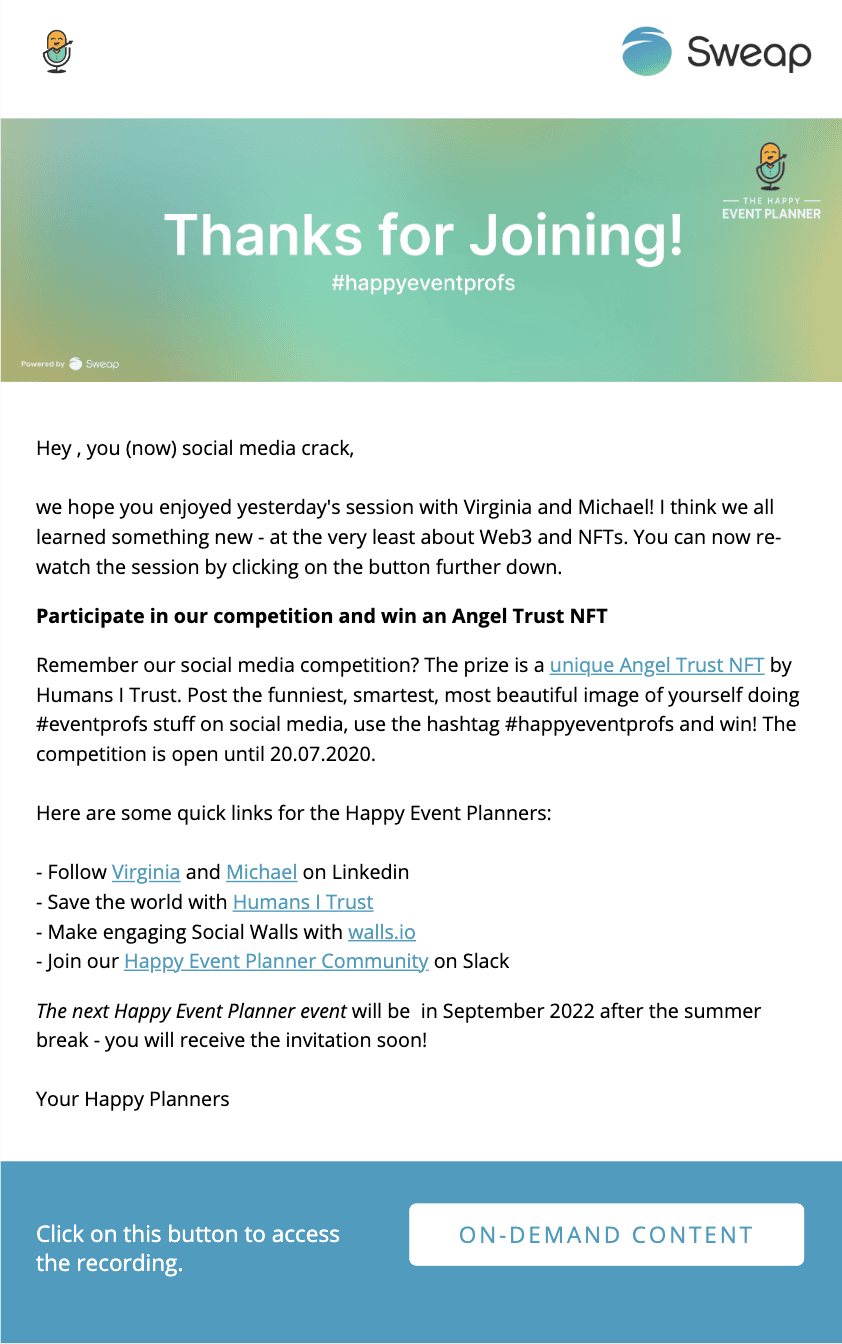
An invitation from The Happy Event Planner
Behind the scenes, work with your team to lay the groundwork for a successful event. Hire speakers, sponsors, and other partners to coordinate a launch cross-promotion strategy. Set up search engine marketing and display adverting campaigns where you can promote early bird ticket discounts to drive awareness.
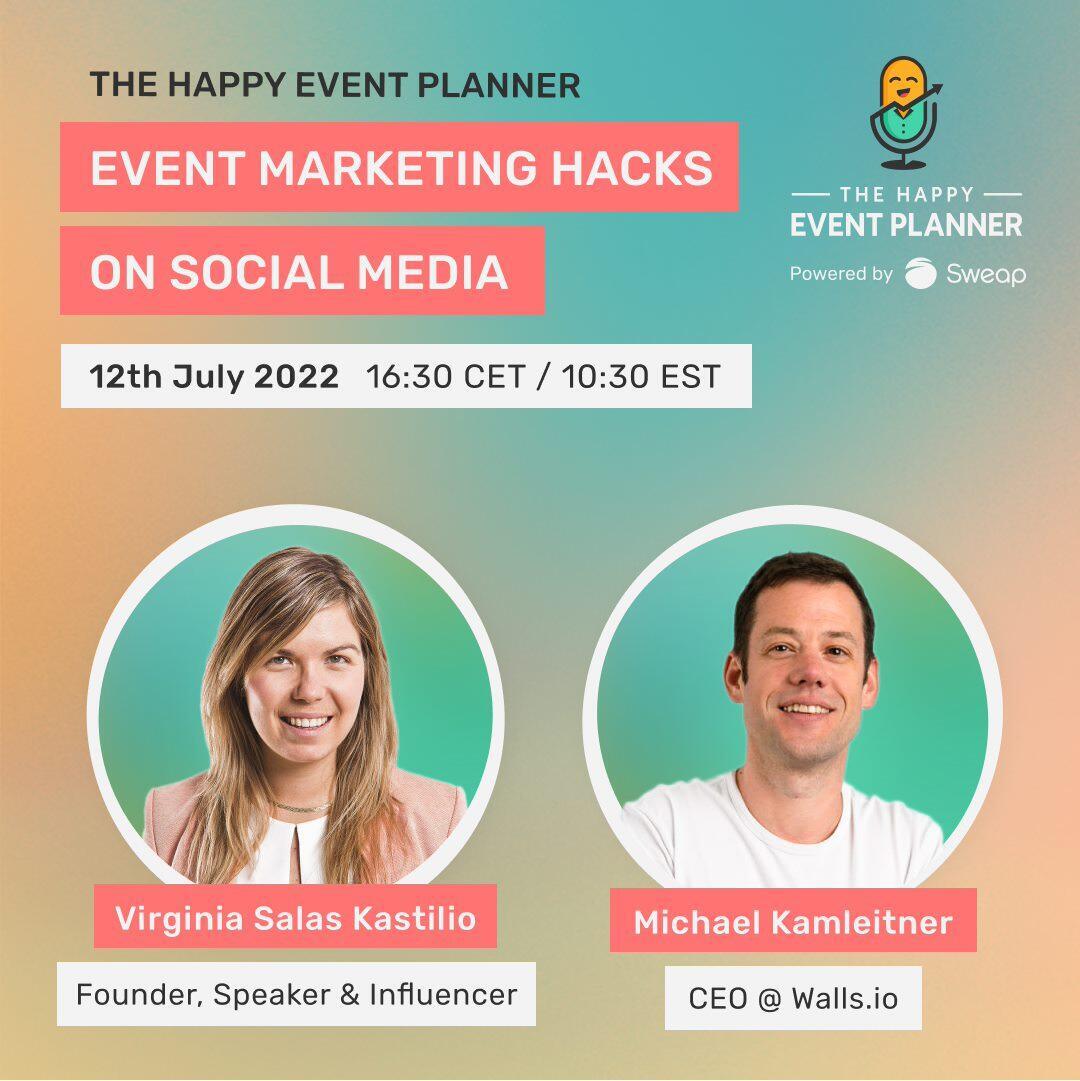
A Linkedin advertisement of The Happy Event Planner
6 weeks before your event
With your event on the horizon, it is time to start making your messaging more urgent and finalizing your activities to make the event a success. Book the venue and begin making security arrangements.
You can upload video footage of previous events on your company's YouTube channel if they feature the same artist who will grace the coming event. Optimize the video content with search engines to increase exposure among your target audience.
Now more than ever, you can start retargeting to reach out to anyone who has already made an effort to purchase a ticket. Remind them that time is almost running out, and they might miss a ticket if they wait longer.
3 weeks before your event
Have several listings where you can target your audience and submit your event.
Tip: If you want to promote your event on multiple listings, start scheduling them to go no more than three months in advance. The main reason to start early is that websites have varying content approval procedures. If you promote earlier than the three-month mark, the content may receive significant attention.
On the other hand, using channels like email, social media, and mobile marketing allows you to schedule your event promotion as far as possible. You can always increase interaction through comments, likes, and shares. This is where you should start building up your event community with community marketing.
2 weeks before your event
Now that your event is fast approaching, it is time to make the final pushes. Send one last follow-up email to people who never opened previous emails and let them know it is the last call. Urge them to purchase or register for the event before it is too late.
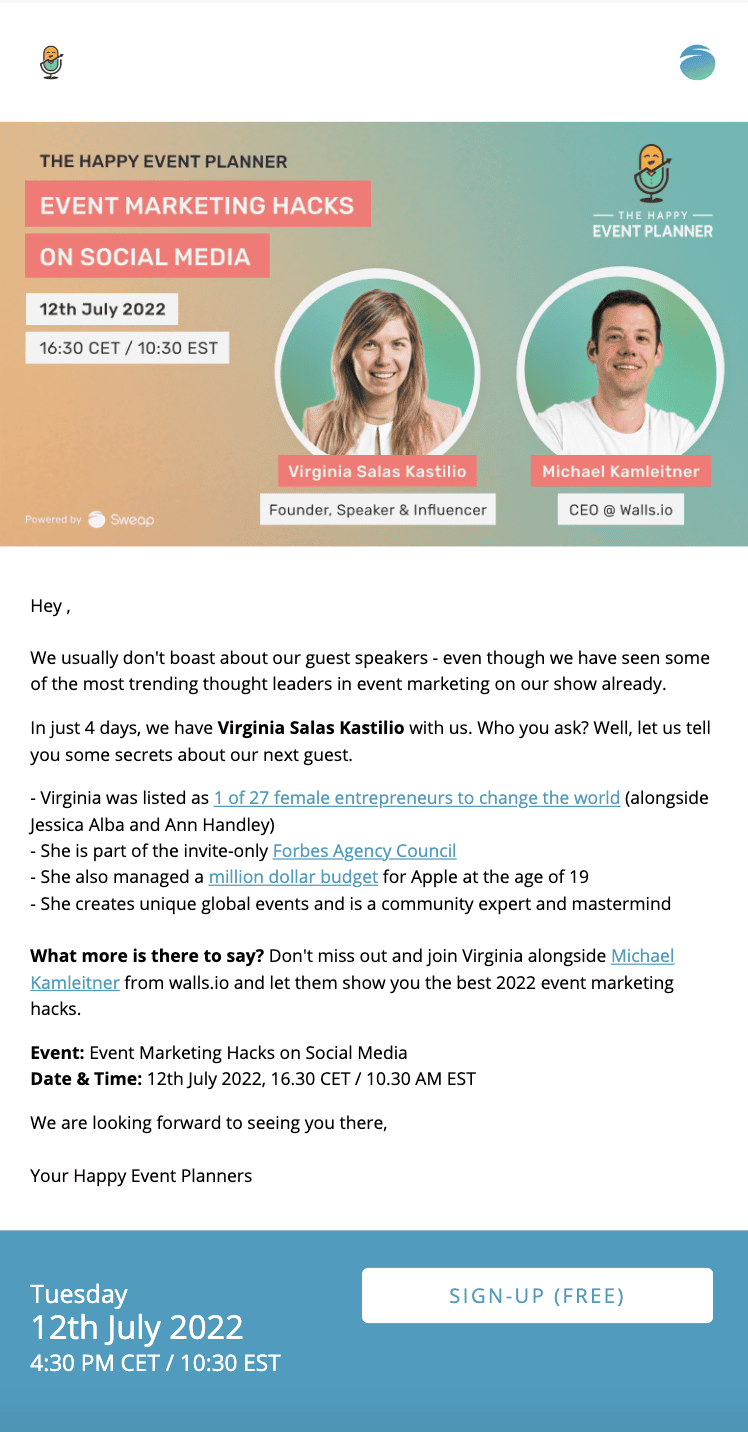
A follow-up mail of The Happy Event Planner.
1 week before your event
Start promoting the event on your social media channels to reach anyone who may not have received an email or watched your videos. Use relevant Twitter hashtags and request retweets from your existing followers.
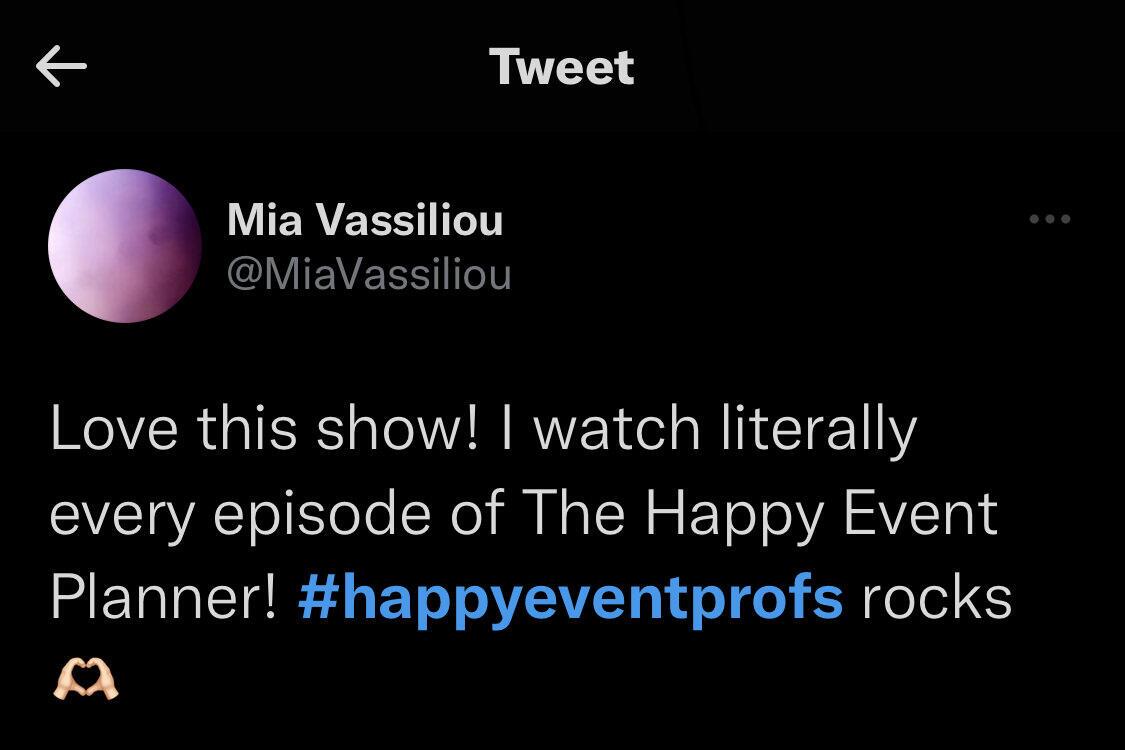
A retweet from a follower with the event hashtag.
Publish the event on the business Facebook page, which you can always set up in advance as a draft, then tweak later as necessary to save time. Also, reach additional users by using the tagging feature on Facebook, where you tag your parents using their Facebook names.
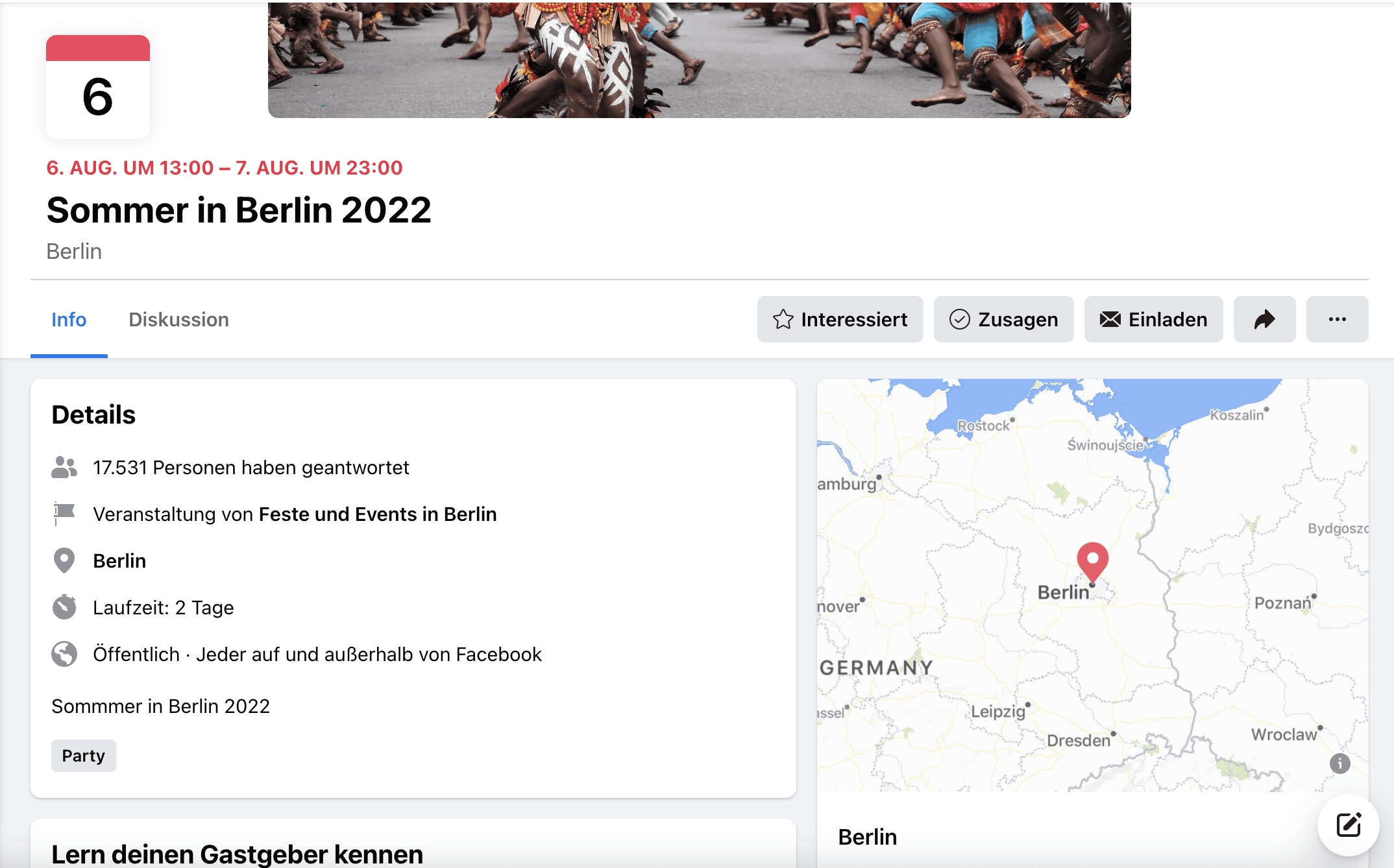
An exemplary Facebook event.
4 days before your event
Now that everything is set up, you can send the last email to your subscriber list to remain anyone who may have forgotten the event's date or time. Be careful to avoid sending too many emails, as you may soon find people sending them straight to spam.
The maximum number of emails you can send for your event should be moderate, about twice-weekly. Ensure the email contain relevant content that the subscriber wants to know about your event.
The final countdown
Keep promoting your event on Twitter and updates on Facebook. Your tweets should be more informative and not just dressed-up ads. Keep your audience on the radar and ensure they understand the event will go as planned.
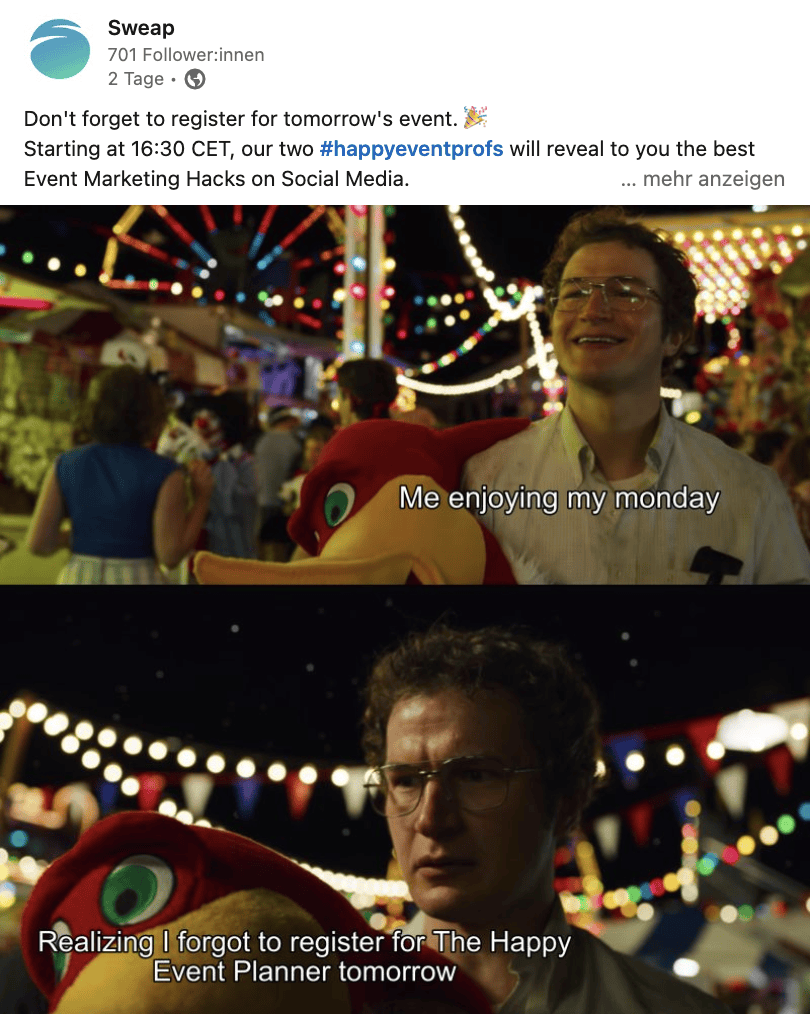
Event countdown post from The Happy Event Planner.
On the day of the event
If you plan to repeat the same event in the future, consider posting tweets in real-time during the event to drum up awareness for your next occasion. One way you can gain loyal followers is using @ mentions and retweeting people who tweet about similar subjects of interest to your followers. Sooner or later, most people will reciprocate.
Note: No marketing strategy can exist in a vacuum. It is best to cross-reference all your content to produce a multiplier effect that will likely end up in more bums and seats.
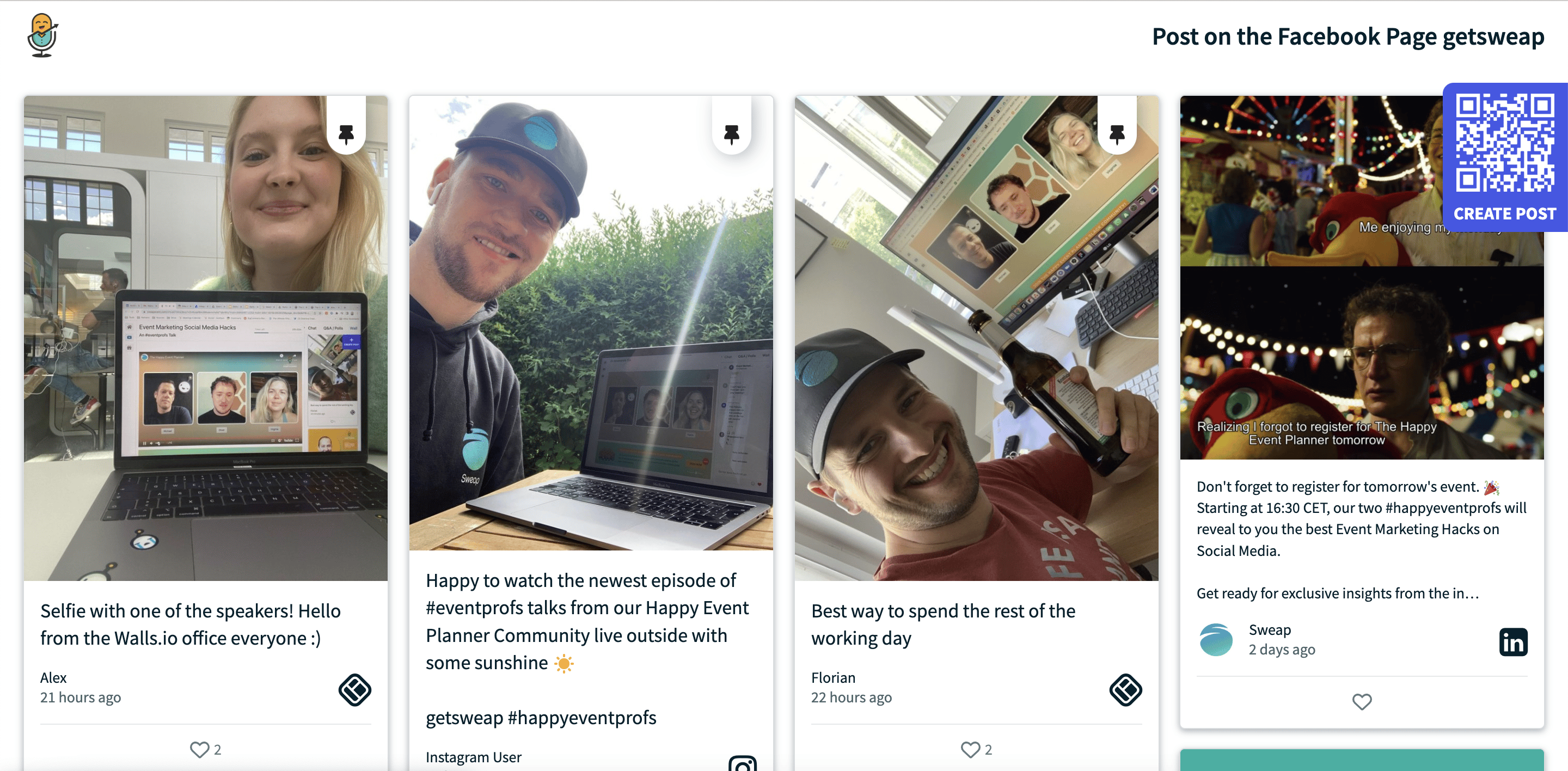
Another great way to show live social media activity at your event is a Social Wall. This allows you to present social media posts that have your event hashtag. A great way to engage your audience and motivate them to share more event content on social media.
Other activities to carry out include:
Take notes of the event, including quotations and members participating
Shoot video and take photos
Post the picture and videos on your social media
Send the notes to the company writer for a post-event blog
Within the first week after the event
Your event was a success, but you have a little more to do to ensure your attendees do not forget about your business:
A follow-up email on the event
Post a blog on the event
Add a charity's link to your websites
Wrap up your social media efforts by thanking all attendees

A follow-up mail of The Happy Event Planner.
A week after the event
Now it's time to measure the success of your event in your marketing campaign or business strategy. Get answers to questions like:
Did other websites pick up your content?
Are there any customers or clients mentioning the event?
Did the press release, social media posting, and blog content diver more traffic to your websites
Have you been featured in any local, new stories?
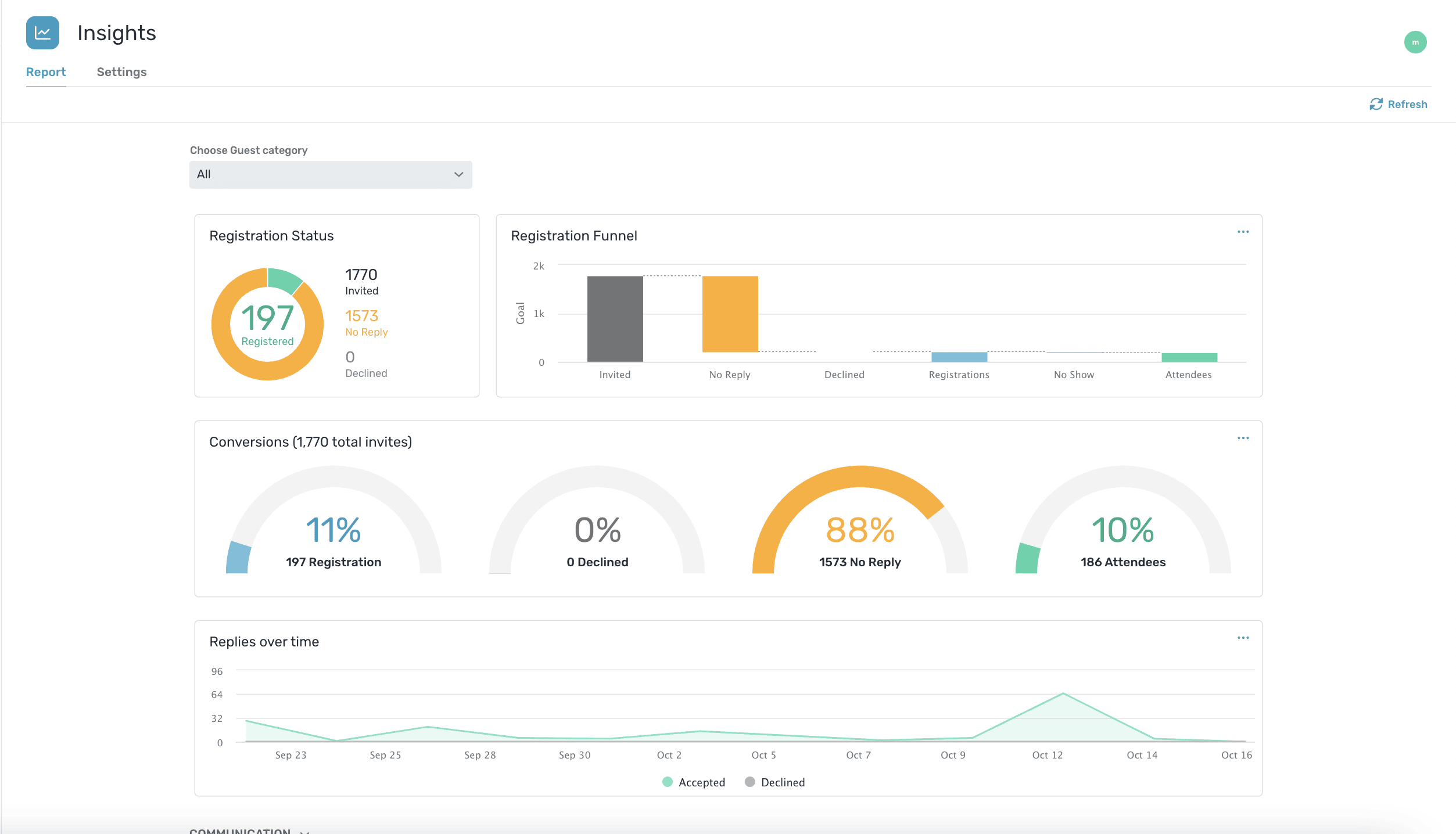
Event Data Analytics in the Sweap Platform.
Wrapping up
Social media and event marketing are a match made in heaven. Nevertheless, you will need other channels, such as reliable email communication tools and event data analytics, to increase your reach and get your message out there. At Sweap, we will help you automate all time-consuming event marketing tasks, allowing you to channel all your energy to the success of your events. Request a demo today to see our Event Efficiency Platform in action.
